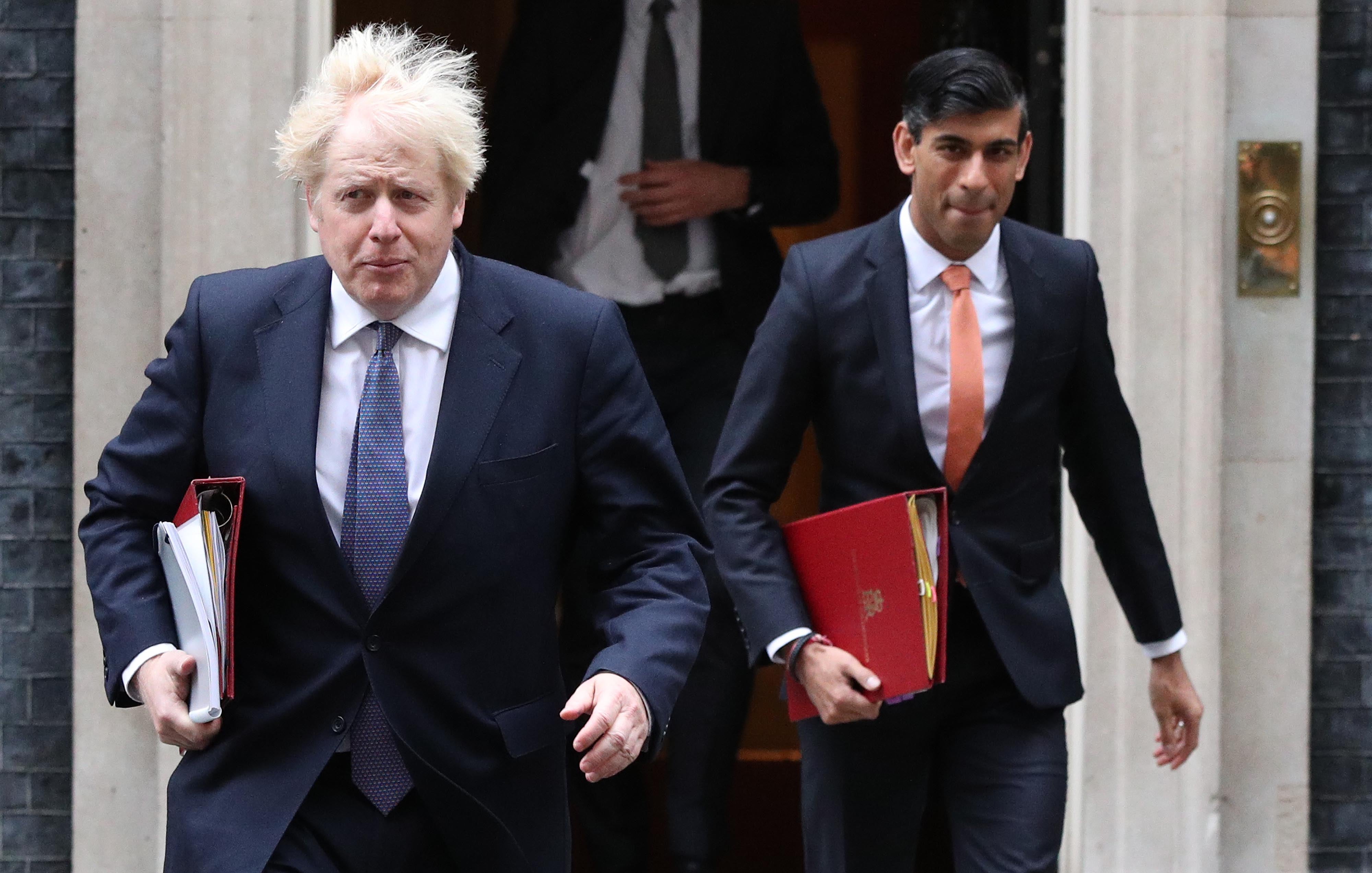Boris Johnson and Rishi Sunak may regret the government confusion over a windfall tax
Even if the government does launch a windfall tax – and pressure is growing – they won’t get the full political benefit because they’ve been so divided and reluctant about it, writes Sean O’Grady


Whether a windfall tax on the profits of the big energy companies is a good idea or not, the government seems determined to contrive things so that it loses politically whatever it does eventually decide to do.
Much the same, in fact, goes for the “emergency budget” (whether it is called that or not), which the opposition and many on the Tory back benches are demanding. But it is the windfall tax that is the immediate issue, the one where the pressure for a U-turn is becoming acute.
At the moment, the government is obviously conflicted on the issue, both between ministers and sometimes even within the minds of ministers themselves. Take the chancellor, for example. Rishi Sunak is mostly against a windfall tax, because it damages investment, and proud of his existing package of measures. His basic philosophy is that the government can’t protect everyone from global trends. He’d definitely prefer not to do anything further until the autumn when the future path of gas and electricity prices and the level of the energy cap is clearer – but he continually adds that he “stands ready” to help, which isn’t that specific.
Others are more adamantine. Kwasi Kwarteng, the business secretary, sometimes creates himself a little bit of wriggle room, and always adds that although he considers windfall taxes a bad idea, taxation is up to the chancellor. Liz Truss, seemingly out on leadership manoeuvres again, signals that she’d not only like to start a trade war with Europe, but also cut as much tax as she can, and certainly not impose any new ones on business. Jacob Rees-Mogg, to be fair, is consistently and rigidly hostile to any windfall taxes on free market grounds.
Then… then there is the prime minister. He’s been all over the place on the windfall tax, and everyone knows it. His dither and delay gives Labour frontbenchers plenty of scope to goad him about divisions in his party and his inability to take a decision. Labour gleefully predicts the PM is on the verge of another of his celebrated U-turns – which makes it even more difficult for him to embrace this popular policy. It seems that even if Johnson could make his mind up he can neither persuade colleagues to back him nor impose his will on them, so weakened is his authority.
Curiously, this most populist of leaders, the man who wants to level up, the champion of the “left behind”, is currently held hostage by his own advisers, it seems, one of whom reportedly remarked that a windfall tax would be “an ideologically unconservative thing to do”. That is not a sentiment which has been much in evidence during Johnson’s time as leader.
Even if the government does launch a windfall tax, they won’t get the full political benefit of it because they’ve been so confused, divided and reluctant about it, and seem to have been pushed into it by opposition pressure and, ironically, public opinion.
At any rate, the windfall tax is a relatively modest move, worth perhaps £150 per household, and much more will be needed to help the millions of families facing a ramping up of their energy bills by two or three thousand pounds a year, plus higher petrol prices, food bills, council tax (part for a temporary repayable “rebate”), with wages for many stagnant (particularly in the public sector).
It is almost a symbolic, feel-good analgesic rather than a cure for the cost of living crisis. At the moment, though, it’s the government that is giving itself a headache about it.



Join our commenting forum
Join thought-provoking conversations, follow other Independent readers and see their replies
Comments